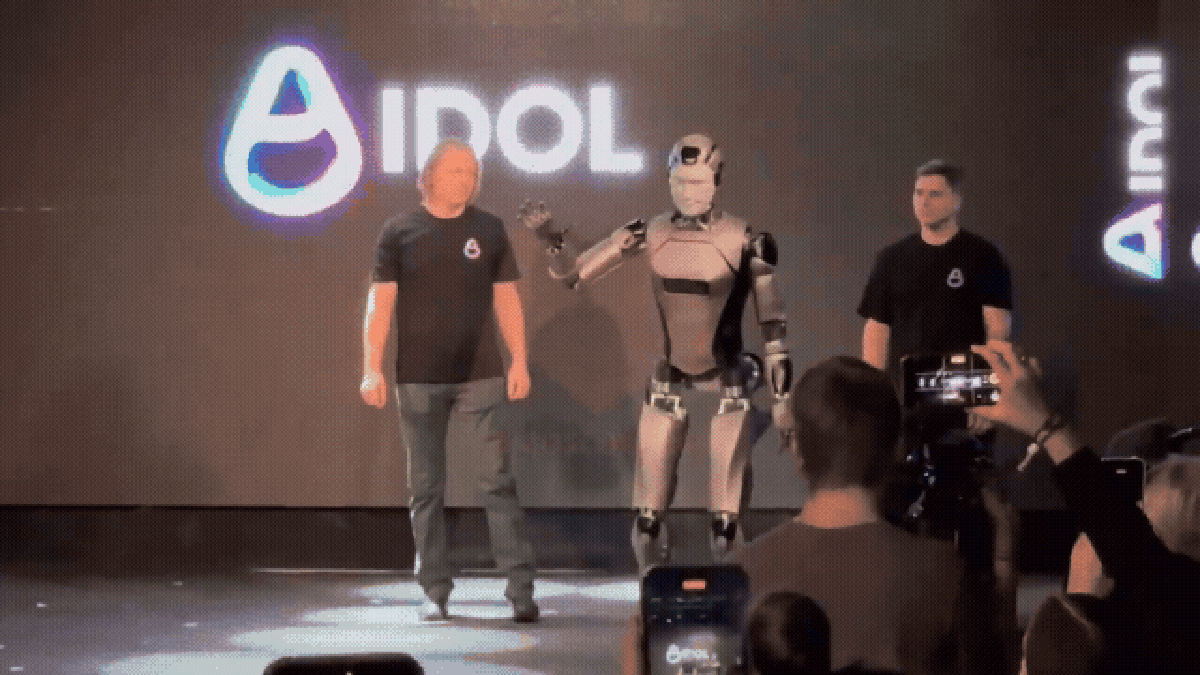
It was a fitting entrance for a heavyweight battle, complete with a ‘Rocky’ theme… But the AI-powered humanoid robot, believed to be one of the first of its kind in Russia, ended up falling flat on its face after briefly staggering on stage during its long-awaited debut in Moscow on Tuesday.
- search: Most people can no longer distinguish between music generated by artificial intelligence and real music
- Fungal computer? Scientists create biodegradable chips from shiitake mushrooms
Organizers quickly removed the machine and raised a black curtain to hide it from the approximately 50 journalists who had gathered to watch the demonstration. It was an unfortunate debut for Russia on the competitive international stage for humanoid AI robots.
The anthropomorphic robot known as Idol appeared to lose his balance after waving to the audience. He fell a few seconds later. He was faster than his Russian rival Ivan Drago, who was defeated by Rocky Balboa in “Rocky IV.”
–At first there was a moment of silence. And they started clapping to show their support, Dmitry Filonov, who was in the audience and is the editor-in-chief of Edinolog Media, which covers technology startups, said in a message to the American newspaper The New York Times on Wednesday.
Aidol, the company that developed the robot, did not immediately respond to a request for comment Wednesday.
According to journalists who attended the event, organizers attributed the robot’s problems to coordination and lighting problems.
CyberCab: Check out Elon Musk’s Tesla robotaxi
Futuristic-looking self-driving car has two seats and a large trunk
Vladimir Vitukhin, executive director of Idol, told Russian government agency TASS that the robot is still in the learning phase.
— I hope this failure turns into an experience — he declared.
The robot’s developers suggested on the project’s website that the AI machine will be able to walk, manipulate objects and communicate with people. This could make it attractive for many potential applications, such as the automotive industry, warehousing, healthcare and even entertainment, they said.
Dozens of companies, from little-known startups to tech giants, are selling humanoid robots and planning to install them in homes and businesses.
In 2024, investment in humanoid technology exceeded US$1.6 billion, not including the billions spent by Elon Musk and his electric car company Tesla on the Optimus humanoid, which began production in 2021.
Filonoff emphasized that it’s not unusual for robotics startups to face growth challenges, citing Boston Dynamics as an example. A few years ago, she compiled a collection of Atlas robot errors that went viral on the Internet.
In a Substack blog written before Tuesday’s event, Filonoff said it was expected that Idol would already have athletic issues.
He noted that while most humanoid robots do not have faces, Aidol’s developers said they have invested heavily in facial creation and technology designed to mimic human expressions.
“I think they were just unlucky,” he concluded.



